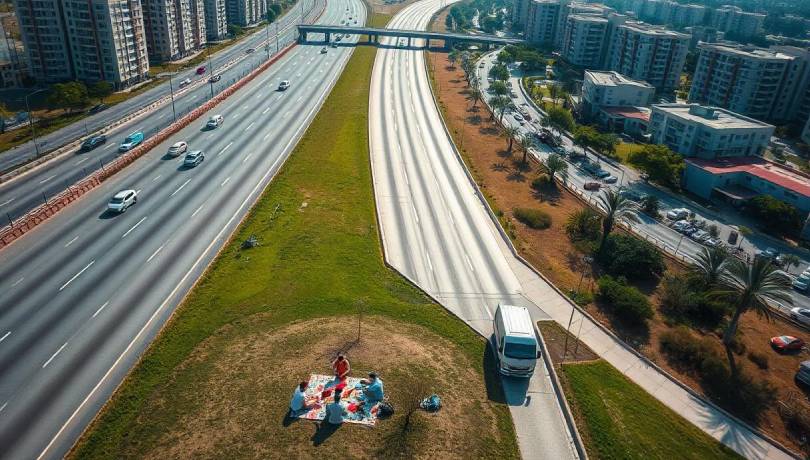How Bangalore – Chennai Expressway is supporting the real estate growth in the connecting cities?
Bangalore-Chennai Expressway
- Overview: The Bangalore-Chennai Expressway is a proposed 262 km long highway connecting Bangalore (Bengaluru) in Karnataka to Chennai in Tamil Nadu, two of the biggest cities in South India. Once completed, this expressway will drastically reduce the travel time between the two cities from around 6-7 hours to just 4 hours. The expressway is expected to boost economic activity, trade, and connectivity between the two major cities, which are key hubs for IT, manufacturing, and business.
- Impact on Real Estate:
- Enhanced Connectivity Between Major Hubs: The expressway will significantly improve connectivity between Bangalore and Chennai, two of South India’s largest and most important metropolitan regions. The improved road infrastructure will make these cities even more accessible, leading to increased demand for real estate developments in both cities and along the expressway route. Cities and towns like Krishnagiri, Vellore, Kancheepuram, and Sriperumbudur will benefit from better connectivity, driving residential and commercial growth.
- Increased Demand for Residential Real Estate: Both Bangalore and Chennai are thriving urban centers, and the expressway will make travel between them faster and more efficient. As a result, areas along the route, especially on the outskirts of Bangalore and Chennai, will see increased demand for residential properties. Investors will be drawn to emerging neighborhoods near Krishnagiri and Vellore, where property values are expected to rise due to the new connectivity. This will likely lead to the development of gated communities, affordable housing, and luxury apartments.
- Commercial and Industrial Real Estate Growth: As the expressway connects major industrial hubs, it will encourage greater trade, logistics, and manufacturing activity between Bangalore and Chennai, two of the country’s top IT and industrial cities. This will drive demand for logistics parks, warehousing units, and industrial real estate along the expressway corridor. Cities like Sriperumbudur (in Chennai) and Hosur (near Bangalore) are already established industrial zones and will benefit from increased commercial activity and new industrial parks.
- Real Estate Growth in Secondary Cities: Smaller cities and towns along the expressway, such as Vellore, Kancheepuram, and Krishnagiri, will see significant growth in residential, commercial, and retail properties. The improved access to Bangalore and Chennai will make these areas attractive for businesses and residents looking for more affordable options, contributing to the growth of the real estate market in these secondary cities.
- Increased Investment Opportunities: Investors will be keen to capitalize on the potential of regions that were previously difficult to access. As the expressway improves connectivity, demand for real estate investment in these areas will surge. Both residential developers and commercial real estate investors will see opportunities for growth in areas along the expressway corridor, including the development of business parks, hotels, and shopping centers.
- Tourism and Hospitality Real Estate: The Bangalore-Chennai corridor is known for its tourist attractions, including Hampi, Chittoor, and Tirupati, which will benefit from improved connectivity. This will increase demand for tourism-related real estate such as hotels, resorts, and restaurants in these areas. Improved road access will also make these destinations more attractive for short trips, leading to a boom in hospitality and recreational real estate.
Conclusion for Bangalore-Chennai Expressway:
The Bangalore-Chennai Expressway will play a transformative role in shaping the real estate market in both major cities and the towns along its route. With drastically improved connectivity, these regions will witness a rise in residential, commercial, and industrial real estate development. The expressway will not only stimulate business growth but also provide investors with attractive opportunities for high returns in a rapidly expanding market. Enhanced access to educational, healthcare, and cultural hubs will further contribute to the rise in real estate demand across this corridor.

